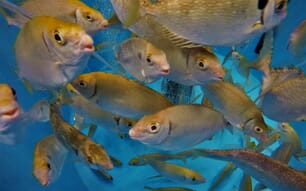According to Science for Environment Policy, researchers examined the gut contents of ten different species of fish found in UK waters and showed that so-called ‘microplastics’ were found in all species.
Between 60 and 80 per cent of marine litter is plastic. Although larger items are well documented, much less is known about distribution or effects of microplastics - fragments below 5mm in size.
Such microlitter is given special consideration under the Marine Framework Strategy Directive and in a recent report experts recommended that approaches for sampling this marine litter should be standardised, both in terms of methods and coverage.
There is particular concern that these particles could clog or carry harmful pollutants into the guts of marine animals.
Sea creatures, including crustaceans and mussels, have been shown to ingest these microplastics in the laboratory, but studies in natural environments are rare.
For this study, researchers examined the guts of 504 individual fish of ten species caught in the English Channel.
Over a third of the fish (184) were found to contain microplastics, which made up 92 per cent of all plastic material found. Five of the species included were pelagic fish, which are bottom-dwellers, and five species were demersal fish, which live higher up the water column.
Researchers found microplastics in the guts of all species, with no difference in amounts between pelagic and demersal species.
Across all species, the average number of pieces of microplastic per fish was just less than two, although there were examples of fish ingesting up to 15 pieces.



